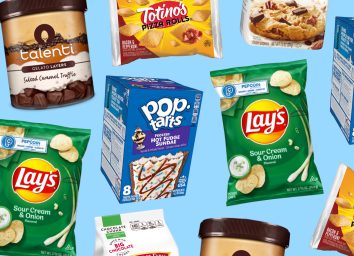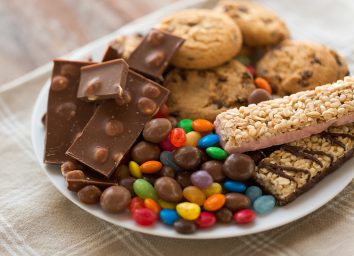Healthy Breakfast Foods Dietitians Say You Should Be Eating
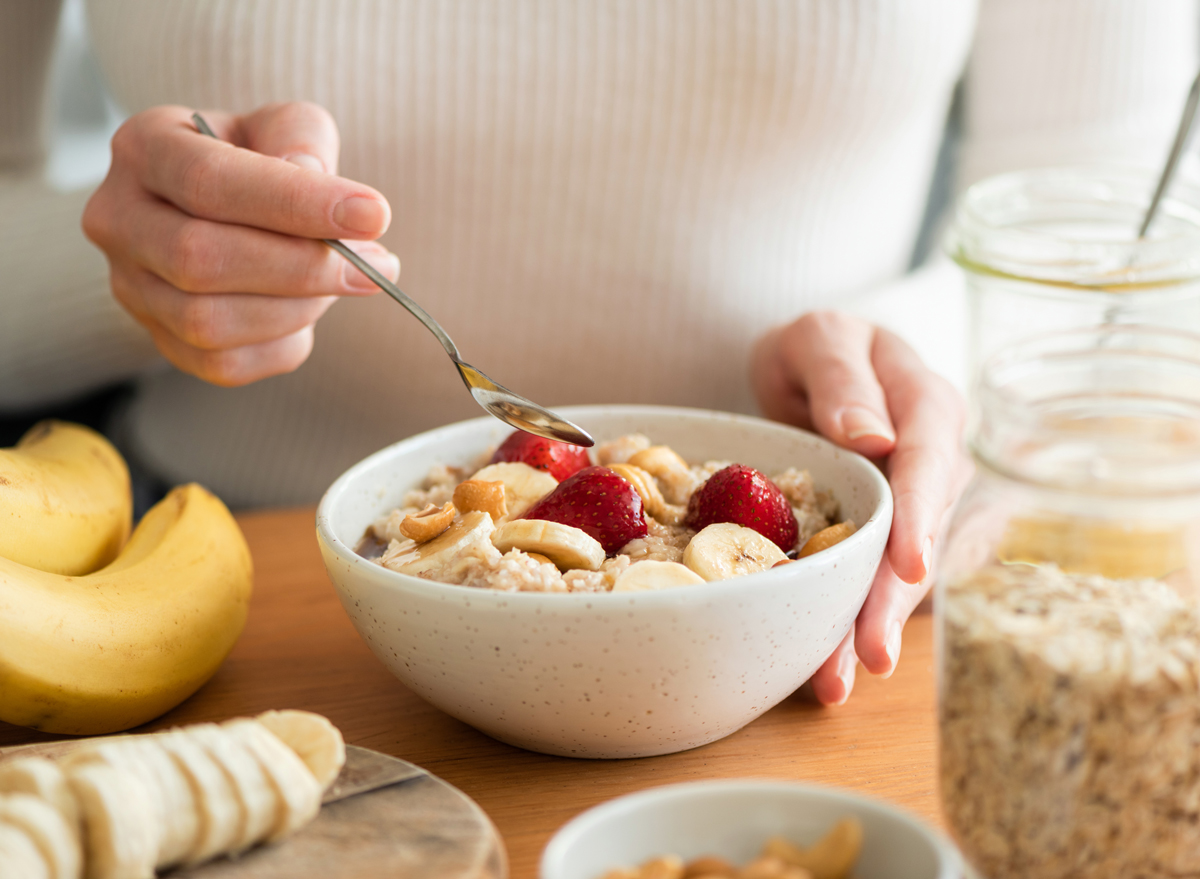
To eat breakfast or to not eat breakfast, that is the ultimate question. Breakfast is a hot topic among dietitians and health experts, yet a majority do believe that eating breakfast is better for your health. While some point out that you should only eat breakfast if you actually feel hungry, others say it’s important fuel to get you through the morning—especially if you started the day with a hard workout.
“It’s important to eat a nutritious breakfast that is going to fuel your morning and set you up for success the rest of the day,” says Rima Kleiner, MS, RD from Dish on Fish. “Aim to include protein, fiber, and a little heart-healthy fat in your morning repast. This winning combination helps to keep you feeling fuller longer and performing your best. Our Turmeric Smoked Salmon Breakfast Bowl is a great way to ensure you’re getting the ideal amounts of these key macronutrients, plus a host of other important vitamins, minerals, and antioxidants.”
“One of the biggest mistakes people make at breakfast time is not eating enough quality food,” says Meghan Sedivy, RD, LDN from Fresh Thyme Market. “In the morning, your energy stores are depleted by as much as 80% from the night before. Without food, your body begins to conserve energy and burn fewer calories—slowing down your metabolism. Studies show that breakfast skippers were nearly five times more likely to be obese than people who eat breakfast.”
So what are the best breakfast foods to eat? Below, we list six healthy things that dietitians recommend you eat on a regular basis in order to properly fuel your body. For even more healthy eats throughout the day, check out our list of the 100 Easiest Recipes You Can Make.
Oats
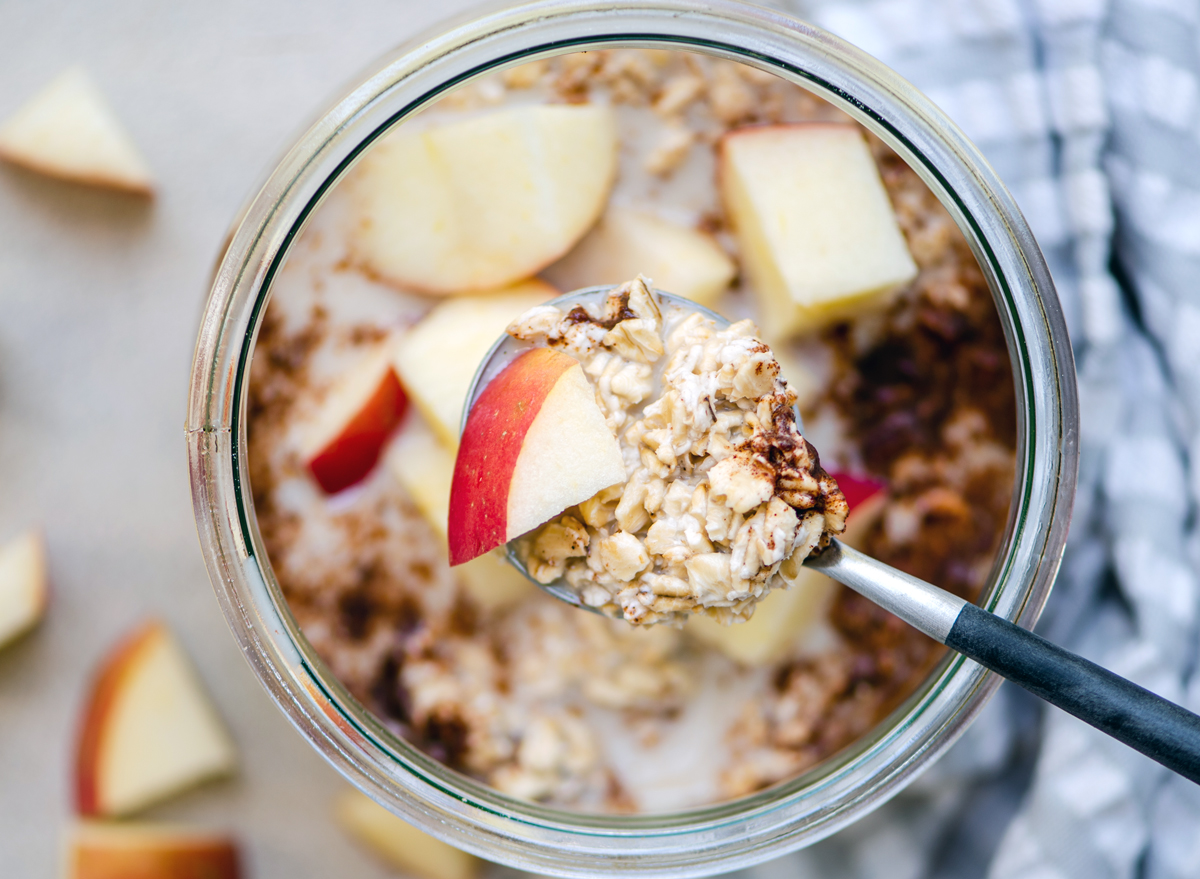
“Oatmeal is a high fiber whole grain, which provides iron, B vitamins, and complex carbohydrates, and the beta-glucan fiber can help aid heart and digestive health,” says Sarah Schlichter, MPH, RDN of Bucket List Tummy. “To increase protein intake [in your oatmeal], you can cook your oatmeal in milk, add egg or egg whites, add protein powder or Greek yogurt. Healthy fats can be added with nut butter, nuts, and seeds, including chia seeds, flax seeds, and hemp seeds. Fruits—like berries and bananas—can up the nutrition content even more, while offering more fiber and micronutrients. Finally, flavors like cinnamon, ginger, nutmeg, vanilla, honey, brown sugar, and turmeric are great flavor enhancers with health-promoting properties.”
While all of these toppings are excellent choices for sprucing up your morning bowl of oats, be sure to avoid going overboard with certain sugary and fattening options that will leave you feeling sluggish instead of energized.
“It is important to understand that how oatmeal is prepared will determine its benefits in your breakfast rotation,” says Trista Best, MPH, RD, LD from Balance One Supplements. “Loading oatmeal with sugar, butter, and creams will increase its calorie density and negate many of the positive nutrients it provides. Fortunately, by selecting nutrient-dense toppings and mix-ins like nuts, fresh fruit, nut-based milk, and natural sweeteners, oatmeal can become a powerful breakfast food for your health.”
Here’s The Secret Trick for Making Your Oatmeal Healthier, According to a Dietitian.
Whole Grains
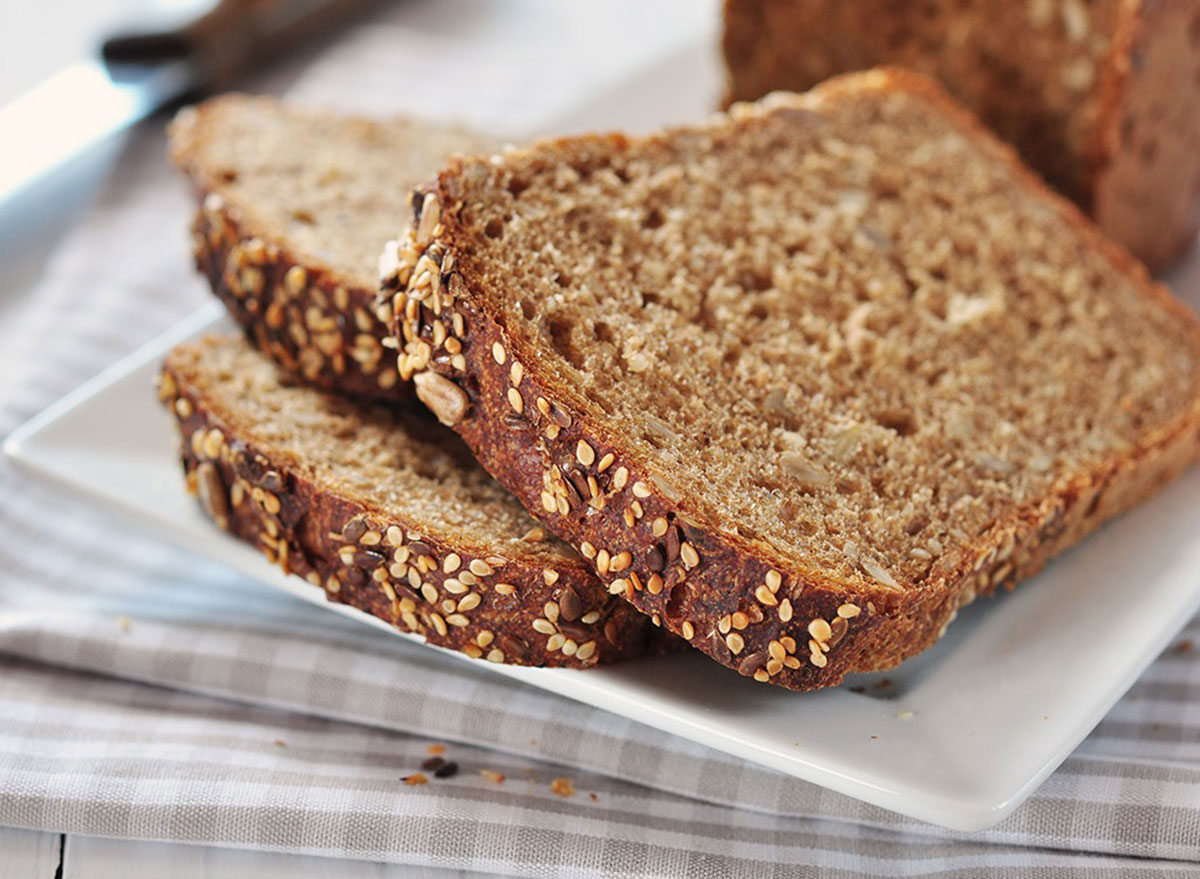
Oatmeal is a great example of a healthy whole grain, but it doesn’t have to be the only whole grain you stick with for breakfast. In fact, there are many whole-grain products you can choose from that will satisfy you in the same way and give you all of those fiber-rich benefits.
“Whole grains are a great choice for breakfast,” Jinan Banna, PhD, RD says. “Oats are an excellent example and are a great choice because they provide fiber, protein, and vitamins and minerals. Whole-grain foods will help you to stay full until lunch and give you sustained energy.”
You can even turn your favorite foods into whole grains—like with this Plant-Based Whole Grain Pancakes Recipe!
Greek Yogurt

“Greek yogurt is a great addition to breakfast, as it contains protein and calcium to help maintain muscles and bone health, as well as probiotics, the ‘friendly’ bacteria that promote healthy digestion,” Sedivy says.
Here’s What Happens To Your Body When You Eat Greek Yogurt.
Berries
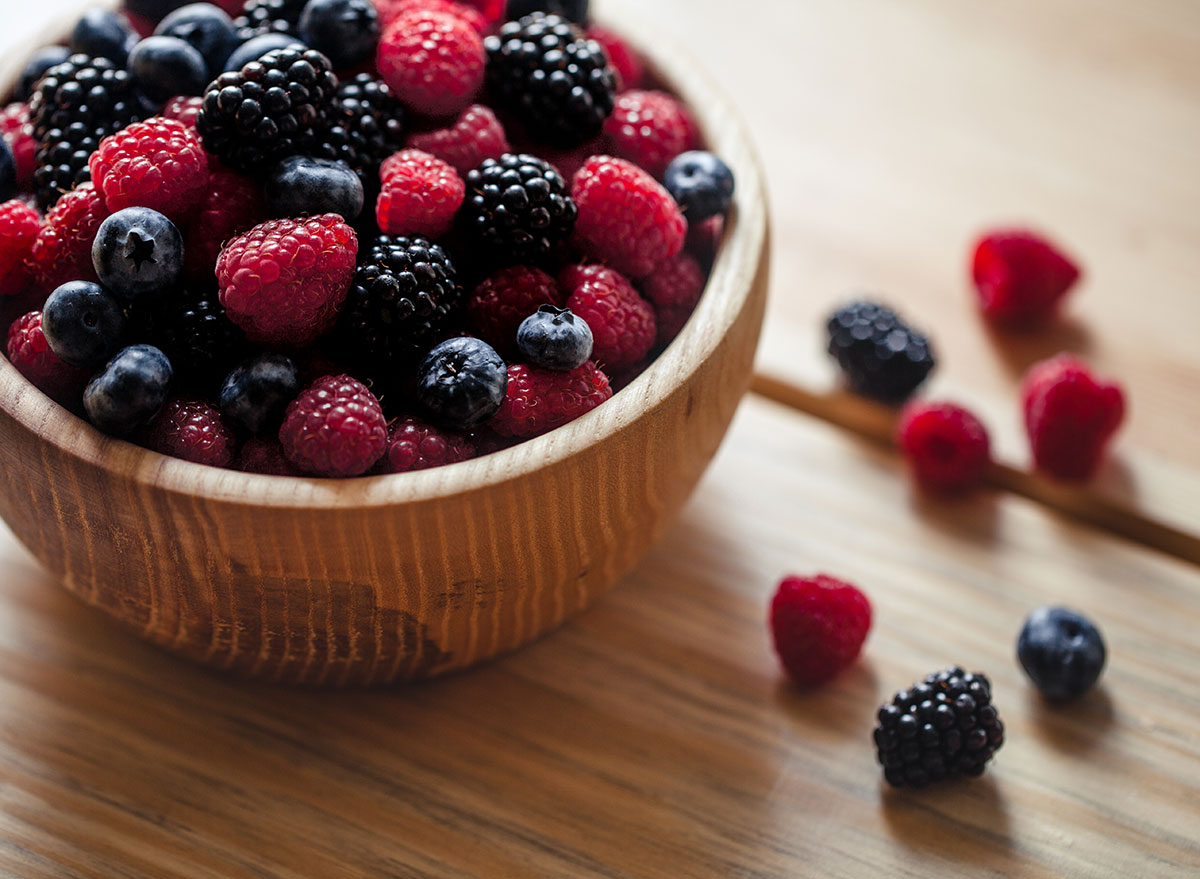
“Berries are one of the most diverse categories of fruits,” says Mackenzie Burgess, RDN and recipe developer at Cheerful Choices. “They contain health-promoting phytonutrients called anthocyanins, which can help fight inflammation, lower blood pressure, and reduce the risk of heart disease. Bored of eating them on their own? Try mashing into a two-ingredient chia seed jam, slicing over peanut butter toast, or adding to overnight oats.”
Oranges
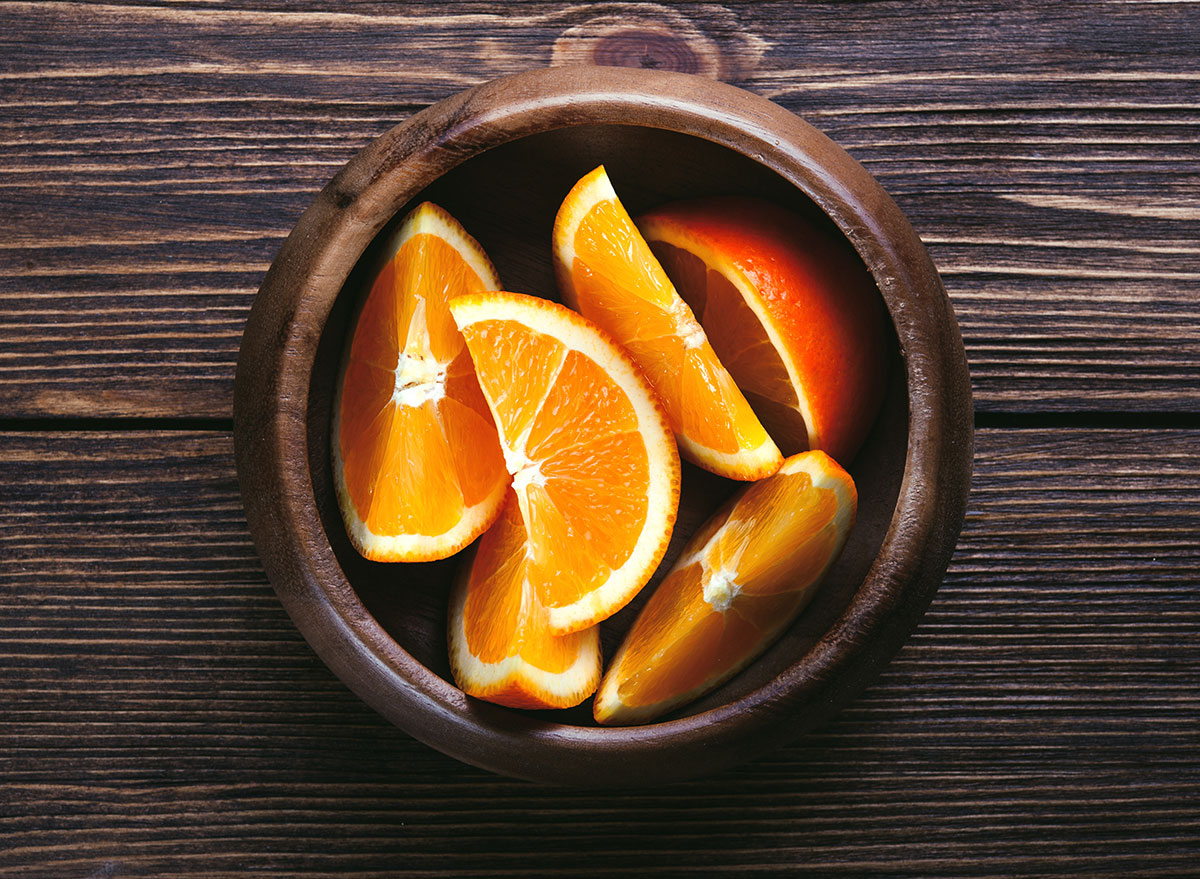
“On average, one medium-sized California Cara Cara or Navel orange contains 3 grams of dietary fiber, which can help keep you fuller longer, improve blood cholesterol levels, and lower your risk of heart disease, stroke, obesity, and even type 2 diabetes,” says Frances Largeman-Roth, RDN, nutrition expert and author of Smoothies & Juices: Prevention Healing Kitchen. “Oranges are also very hydrating and naturally contain potassium, an electrolyte our body can’t make its own. When I start to amp up my spring fitness, I like to have an orange at breakfast. Potassium is essential for muscle contractions and hydration among other benefits.”
Eggs
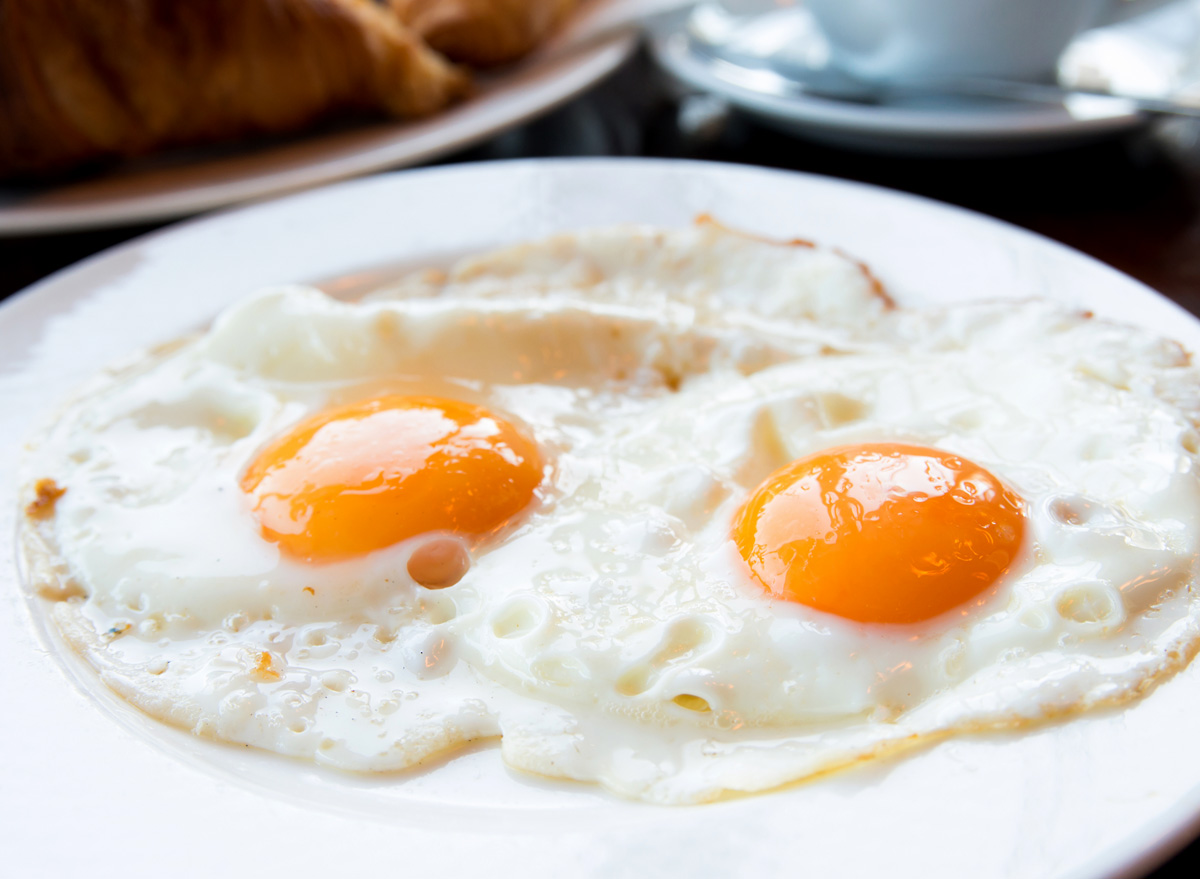
“Eggs are one of the healthiest breakfast foods you can eat,” says Megan Byrd, RD from The Oregon Dietitian. “Eggs are known to be high in protein and vitamin D, but they are also one of the best sources of choline. Choline aids in metabolism function and is essential for fetal growth development. That makes eggs extremely healthy for pregnant women.”
In general, look to add in protein.
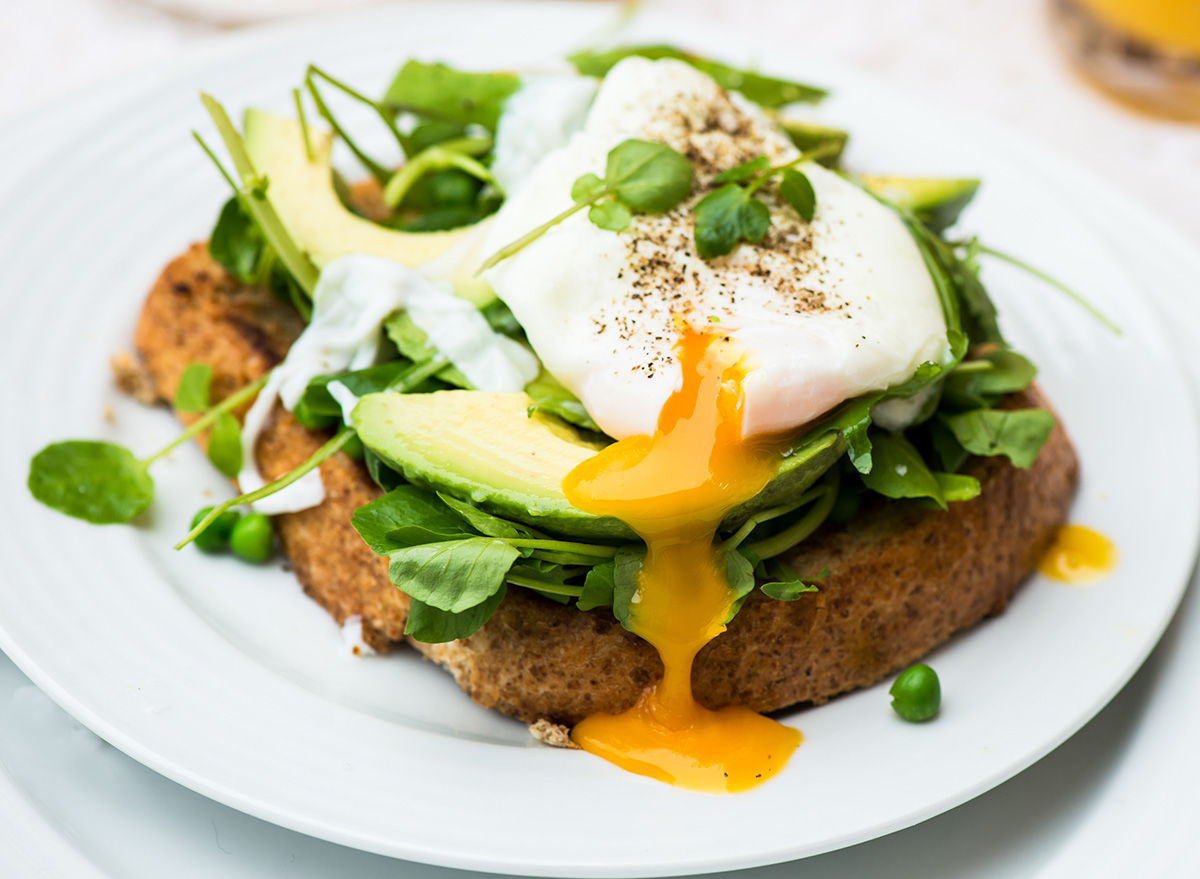
Most registered dietitians would suggest finding ways to add protein to your breakfast for long-lasting energy and satisfaction after your meal. As long as it’s something you like and something that’s healthy for your body, this can come in any form.
“The best breakfast is one you enjoy eating,” says Amy Goodson, MS, RD, CSSD, LD, author of The Sports Nutrition Playbook. “You can set yourself up for a day full of energy and less of the hunger pangs by eating a great breakfast! The goal is to get a high fiber carbohydrate and a protein. Greek yogurt is an easy go-to protein-packed food that can be made any way you like. You can add fresh fruits like grapefruit, peaches, and all of the berries or top it with whole granola for fiber. And this dietitian loves oatmeal with peanut butter! High in fiber with added protein and healthy fat from the peanut butter, this breakfast will keep you satisfied for hours, and it’s easy to make in a hurry!”
Dr. Rachel Paul, PhD, RD from CollegeNutritionist.com, recommends focusing on higher fat and protein breakfasts that keep you full during lunch. Some of her favorite combinations include two hard-boiled eggs with a guacamole packet, low-sugar Greek yogurt with crushed nuts, or an apple or banana with two tablespoons of peanut butter.
All in all, finding ways to add in those key elements—protein, fiber, and fat—will help keep you feeling full for the rest of the morning.
“As a registered dietitian, I recommend eating a well-rounded breakfast composed of lean protein, quality carbohydrates, healthy fats, and fresh produce,” Sedivy says. “Combining these meal components creates a complete meal filled with nutrients to fill you up and keep you full until your next meal.”
Get even more healthy tips straight to your inbox by signing up for our newsletter!
